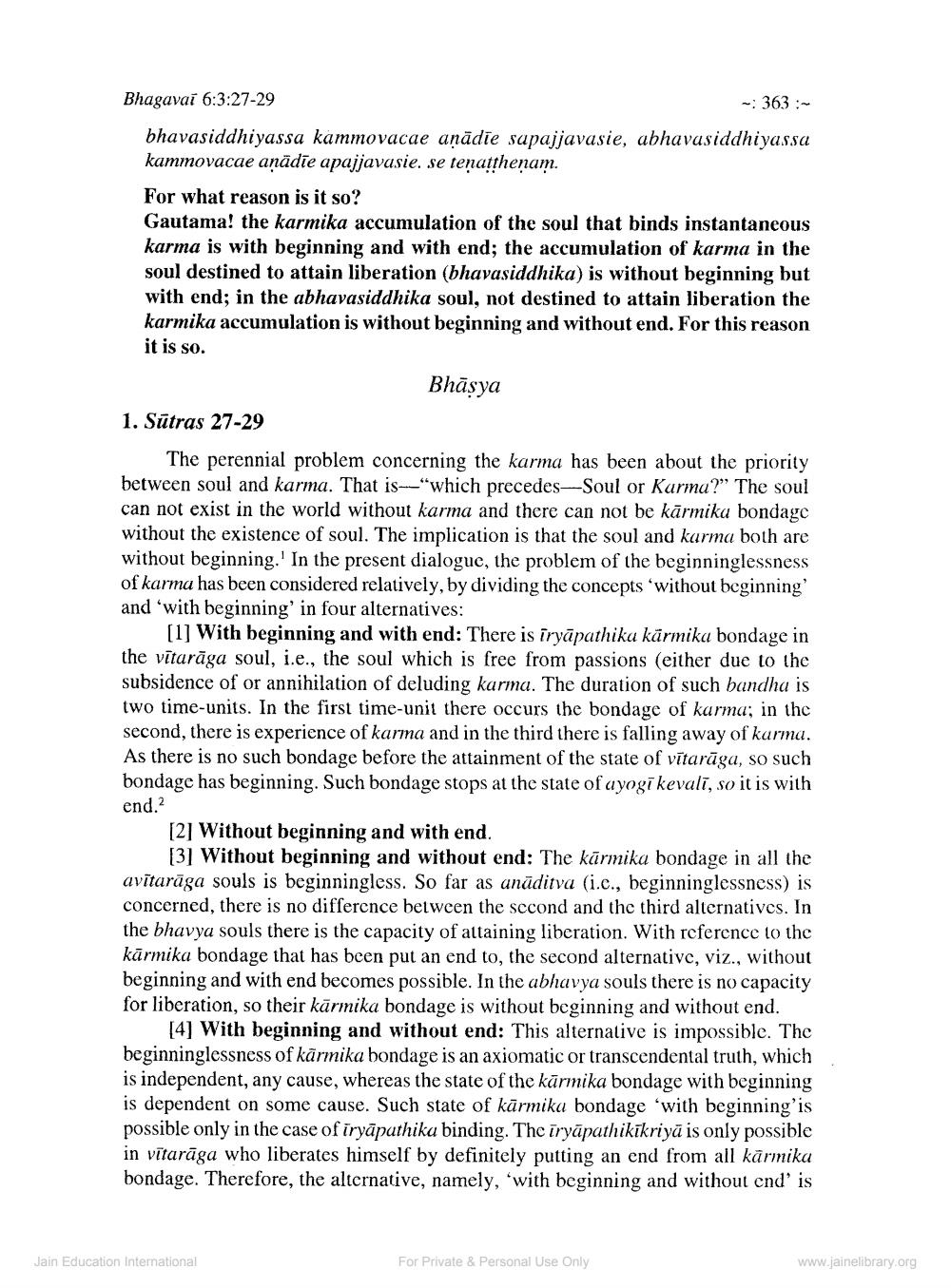________________
Bhagavai 6:3:27-29
- 363 :bhavasiddhiyassa kammovacae anādie sapajjavasie, abhavasiddhiyassa kammovacae aņādīe apajjavasie, se tenatthenam. For what reason is it so? Gautama! the karmika accumulation of the soul that binds instantaneous karma is with beginning and with end; the accumulation of karma in the soul destined to attain liberation (bhavasiddhika) is without beginning but with end; in the abhavasiddhika soul, not destined to attain liberation the karmika accumulation is without beginning and without end. For this reason it is so.
Bhāsya
1. Sūtras 27-29
The perennial problem concerning the karma has been about the priority between soul and karma. That is--"which precedes-Soul or Karma?” The soul can not exist in the world without karma and there can not be kārmika bondage without the existence of soul. The implication is that the soul and karma both are without beginning. In the present dialogue, the problem of the beginninglessness of karma has been considered relatively, by dividing the concepts without beginning' and 'with beginning' in four alternatives:
[1] With beginning and with end: There is īryāpathika kärmika bondage in the vītarāga soul, i.e., the soul which is free from passions (either due to the subsidence of or annihilation of deluding karma. The duration of such bandha is two time-units. In the first time-unit there occurs the bondage of karma; in the second, there is experience of karma and in the third there is falling away of karma. As there is no such bondage before the attainment of the state of vītarāga, so such bondage has beginning. Such bondage stops at the state of ayogi kevalī, so it is with end.2
[2] Without beginning and with end.
[3] Without beginning and without end: The kūrmika bondage in all the avītarāga souls is beginningless. So far as anāditva (i.c., beginninglessness) is concerned, there is no difference between the second and the third alternatives. In the bhavya souls there is the capacity of attaining liberation. With reference to the kārmika bondage that has been put an end to, the second alternative, viz., without beginning and with end becomes possible. In the abhavya souls there is no capacity for liberation, so their kārmika bondage is without beginning and without end.
[4] With beginning and without end: This alternative is impossible. The beginninglessness of kārmika bondage is an axiomatic or transcendental truth, which is independent, any cause, whereas the state of the kārmika bondage with beginning is dependent on some cause. Such state of kārmika bondage 'with beginning'is possible only in the case of iryāpathika binding. The īryāpathikīkriyā is only possible in vītarāga who liberates himself by definitely putting an end from all kārmika bondage. Therefore, the alternative, namely, 'with beginning and without end' is
Jain Education International
For Private & Personal Use Only
www.jainelibrary.org




